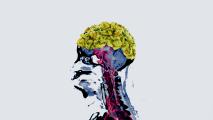
Biotech
Human history has been all but defined by death and disease, plague and pandemic. Advancements in 20th century medicine changed all of that. Now advancements in 21st century medicine promise to go even further. Could we bring about an end to disease? Reverse aging? Give hearing to the deaf and sight to the blind? The answer may be yes. And soon.
More
Ketamine explained: Understanding the special k drug
Ketamine, known recreationally as the “Special K” drug, is a trance-inducing anesthetic that researchers believe has more powerful uses off the dance floor.
9 ways the 2010s decade changed the world
From Tinder to CRISPR, these are the top moments, movements, and ideas through which the 2010s decade shaped the world as we know it.
Healing PTSD with MDMA therapy
New hope for PTSD sufferers is coming from an expected quarter: MDMA.
We may have found a drug to curb meth addiction
Meth addiction is on the rise, so this team of researchers is working to develop the first FDA-approved medication to treat the use disorder.
New promise for psychedelics and depression
New findings on psychedelics and depression show the benefits of microdosing, and could present more effective treatment options.
Series|
Dope Science
Cannabis as a natural treatment for autism
When typical medications simply aren’t doing enough to manage their children’s symptoms, mothers like Jenni Mai are turning to medical marijuana. But with current regulations, parents are having to become pharmacists for their own families, and some are even moving across the country so they can legally access cannabis.
Nature is good for you. What about VR nature?
Nature has the power to reduce stress and enhance our moods. Can VR nature experiences be a substitute for physically spending time in the outdoors?
Diving deep into the brain to measure neurotransmitters
Researchers are taking the first measurements of neurotransmitters in active human brains, using computational psychiatry to understand how the mind works.
Marijuana and autism: Removing the stigma
Research is beginning to prove the hopeful connection between marijuana and autism treatment for symptom relief. Here is one man’s inspiring story.
Series|
Through the Looking Glass
VR trips help treat depression in the elderly
In the U.S., about six million people over the age of 65 experience late life depression. So one organization is providing virtual reality excursions for seniors to help them experience life to the fullest.
Shedding the stigma of substance use
By achieving fitness goals together, The Phoenix community is peeling off the shame, regret, and stigma often associated with addiction.
The fight to end illegal logging
Citizen scientists are collecting tree samples to build a genetic database that will help identify the origins of stolen lumber and stop illegal logging.
Trash-talking robots get under our skin
Can robots control us? Probably not, but they can influence our actions, as this recent study on human-robot interaction by Carnegie Mellon shows.
Series|
Through the Looking Glass
Conquering fear with virtual reality exposure therapy
Whether a patient fears spiders or flying, VR technology allows therapists to treat anxiety disorders by simulating these experiences in a safe environment.
What's special about cancer-killing nanobots? precision.
These tiny, robotic machines can deliver drugs directly to infected cells, and they’re changing the future of medicine.
Breaking the taboo of male infertility
Male infertility contributes to up to half of infertility cases. Why is it so hard to talk about?
Why don’t women’s health companies get adequate funding?
Celmatix Founder and CEO Piraye Beim gives an inside look into the battle to secure funding for women’s health.
For childhood cancer survivors, adult fertility isn’t a given
Experimental procedures offer beta solutions for girls, and more time to figure it out for boys.
A molecular biologist discusses the morality of gene editing
Molecular biologist Daisy Robinton speaks out on our moral imperative to solve some of humanity’s greatest health threats.
Series|
Future of Fertility
IVG: making babies from skin cells
The designer babies of the future are closer than we think. With a new process called IVG, a person could essentially choose their baby’s traits, and same-sex couples could make a biological family.
Subscribe to the newsletter
































